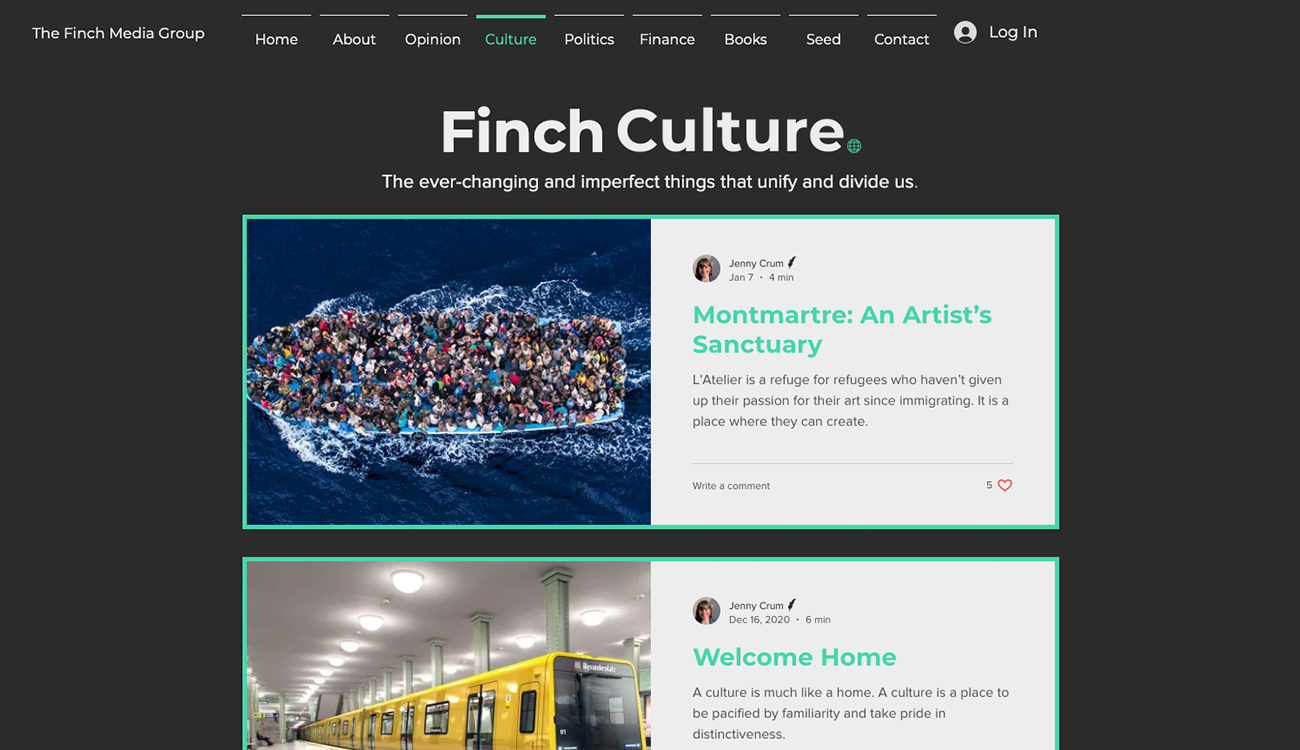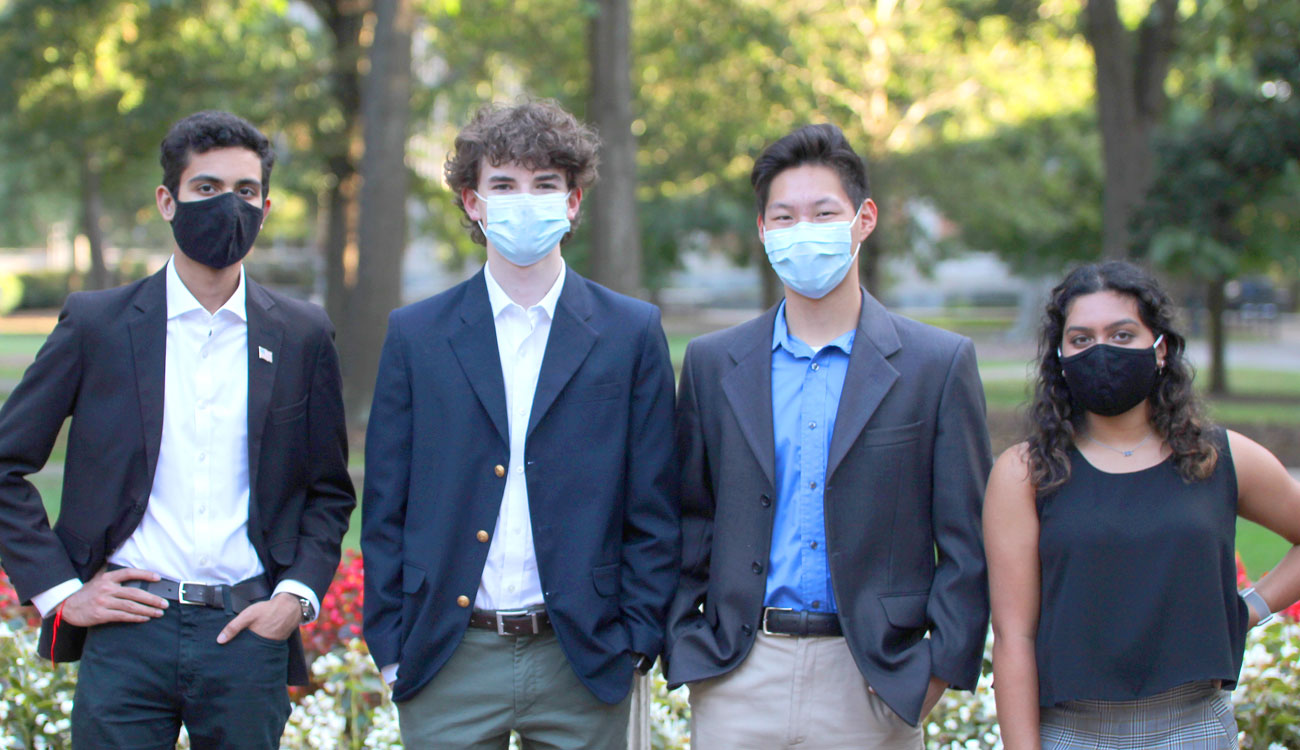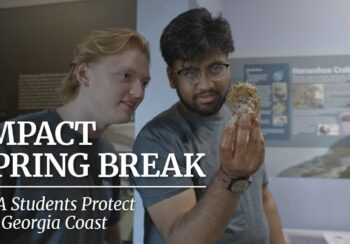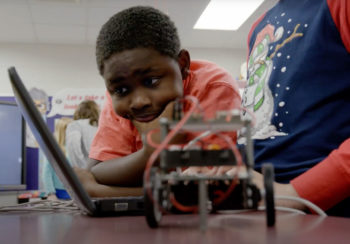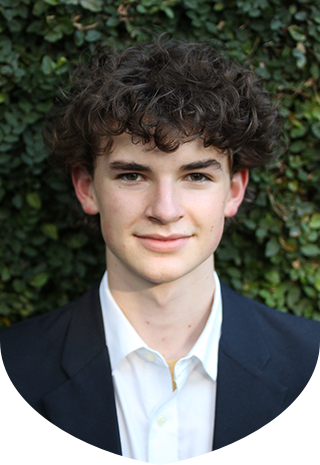
“While the finch birds on a tropical island are not the most interesting thing, like iguanas or other exciting wildlife there, they held the keys to one of the biggest discoveries in the history of science: the theory of evolution and natural selection. Sometimes, things aren’t always as they seem, and small, simple issues are actually incredibly complex.”
– Alex Benoit, co-founder of The Finch podcast
Benoit and Fang became friends after meeting through the Georgia Governor’s Honors Program, with Benoit holding an interest in infectious diseases, microbiology and epidemiology, and Fang in computer science and artificial intelligence. While searching for a memorable and unique name for their podcast, Benoit and Fang settled on The Finch as a homage to the birds famously studied by Charles Darwin in the Galapagos.
“While the finch birds on a tropical island are not the most interesting thing, like iguanas or other exciting wildlife there, they held the keys to one of the biggest discoveries in the history of science: the theory of evolution and natural selection,” said Benoit, a senior at Oconee County High School, about 15 minutes from UGA. “Sometimes, things aren’t always as they seem, and small, simple issues are actually incredibly complex.”
The hosts took this approach while covering the pandemic. Looking through the lens of experts in overlooked fields, Benoit and Fang spoke to UGA historians, philosophers, psychologists and sociologists to share how COVID-19 impacts society beyond the fields of economics and public health.
“We realized that the news cycle is saturated with experts and economists, seemingly having debates and having this false dichotomy between saving lives or opening the economy,” Fang said. “We found it frustrating, and we realized that there were many other discussions to be had.”
With both hosts planning to enter STEM fields later in life, Benoit said he and Fang largely discounted the humanities before starting their podcast. After speaking to experts outside of STEM at UGA and other universities, they see the value in exploring issues found in every field.
“This podcast has really made me appreciate literally every discipline,” Benoit said. “Personally, we’re getting a greater appreciation of the diversity of knowledge, and that’s the goal we hope to bring to the people listening as well.”
Amassing a dedicated following of about 5,000 listeners in less than a year, Benoit and Fang didn’t necessarily plan to continue The Finch beyond their COVID-19 series, but the demand for more episodes gave them the push to expand into new subjects. They continue to produce new episodes despite carrying heavy course loads as dual-enrolled students.
“You really feel as though you’re learning and it’s improving your education to connect with these experts on a personal level, hearing about things you wouldn’t typically hear from a textbook,” Benoit said. “While it’s been time consuming and at times comes at the expense of being able to do scholastic events, I really think it has improved our awareness and our perception of the importance of individual disciplines.”
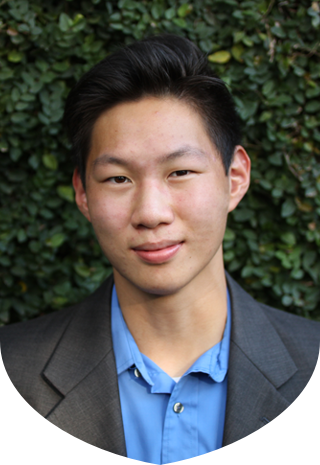
“I love every second of it, and I wouldn’t trade it for the world. I don’t really have an issue with balancing school and podcasting, just out of sheer passion for what I do. There’s a lot of work that goes into each episode, but once it’s pushed out, we’re so proud of our work.”
– Will Fang, co-founder of The Finch podcast
Benoit and Fang brought on students from UGA and across the world to improve the podcast’s production and reach. The podcast boasts a diverse array of 15 student artists, writers and designers from Georgia, California, Massachusetts, Michigan, New York and Indonesia, making it a team effort in producing a new episode.
Krishie Desai, a freshman cellular biology major at UGA, became friends with Benoit through her Young Democrats chapter in high school. A year into their friendship, Benoit reached out to Desai and asked her to help with social media. Already a fan of the podcast, Desai obliged and now serves as The Finch’s outreach director, promoting it across multiple platforms and letting listeners know when a new episode comes out.
“The podcast is able to break down complicated topics into many different subjects, and we’re able to approach it from the humanity, science and research sides,” Desai said. “It has given me the chance to support and publicize something that I actually listen to and that I believe is important for other people to listen to.”
Sudhan Chitgopkar, a sophomore computer science and international affairs double major at UGA, serves as the podcast’s branding director. Chitgopkar met Fang in a computer science class they shared, and he felt compelled to get involved with the podcast after learning about its mission to give a platform for young voices to speak out on national issues.
“The Finch caters mostly to young individuals, primarily students that want to hear a new, unbiased perspective on real-world policy issues that affect them,” Chitgopkar said. “It really came out of Will and Alex just texting each other and being like, ‘Hey, do you want to start a podcast?’ and it has turned into something that’s a lot bigger than that. Seeing two high schoolers create such a beautiful thing out of nothing was amazing.”
With the dizzying number of podcasts out there, Chitgopkar tasks himself with picking up new listeners for The Finch. In addition to receiving early access to the content, he said he enjoys learning from the show’s guests and working on an up-and-coming podcast.
The additional support eases some of the burden on Benoit and Fang, both of whom often stay up into the early morning working on episodes that each take upwards of four to five hours to record. They largely spend their weekends writing podcast scripts and dedicate the week to schoolwork and interviewing guests.
The Finch’s nest may be at UGA, but it interviews experts from across the nation. Since the beginning, individuals both within UGA and beyond have supported its mission by speaking to the podcasters out of pure generosity and passion for their respective fields, Fang said.
“I believe it is important for researchers to do our share to help the public understand our work,” said He, the Fred C. Davidson University Chair in Veterinary Medicine, who discussed vaccine development with The Finch. “Both hosts came well prepared and asked good questions.”
While it took a while to get the podcast off the ground, Fang said the process has gotten easier with time.
“I love every second of it, and I wouldn’t trade it for the world,” Fang said. “I don’t really have an issue with balancing school and podcasting, just out of sheer passion for what I do. There’s a lot of work that goes into each episode, but once it’s pushed out, we’re so proud of our work.”
